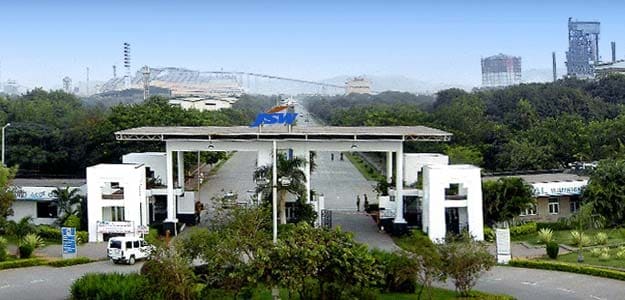
Fitch has downgraded JSW Steel’s long-term issuer default rating (IDR) to ‘BB’ from ‘BB+’, it said in a statement.
The outlook remains negative. The agency also downgraded JSW Steel’s senior unsecured rating and rating on its $500 million 4.75 per cent senior unsecured notes due 2019 to ‘BB’ from ‘BB+’, it added.
“The downgrade reflects the decline in profitability and rise in leverage during a prolonged period of weak international steel prices, coupled with debt-funded investment in capacity expansion,” the agency said.
Fitch said it expects JSW Steel’s leverage to moderate, given that higher capacity is now on stream and its assumption of a gradual improvement in average selling price (ASP) from financial year 2016-17 following government measures to support domestic prices.
“However, there are still risks to ASPs from a premature lifting of regulatory protection and to financial profiles should the company embark on another phase of debt-funded expansion,” it added.
JSW Steel’s profitability has been severely affected by weak steel prices in the April-December period of 2015-16.
The global steel industry is suffering from weak demand and overcapacity and global capacity utilization is at a level last seen during the 2008-2009 global financial crisis, the agency said.
Demand growth was tepid in India at 4.7 per cent in the first nine months of last fiscal year, met largely by imports which jumped by 29 per cent year-on-year, it added.
Some relief has been provided by recent government action such as minimum import prices and safeguard duty extended till March 2018 to protect domestic manufacturers from import pressure, with domestic steel prices having risen by around Rs 4,000 per tonne from January 2016 lows.
Nonetheless, prices are about 20 per cent lower than the average for 2014-15.
“Fitch’s forecast assumes that further price hikes will be constrained in near term, given the heightened competition among domestic producers to support utilization rates,” it said.
However, should the government remove the protectionist policies ahead of any significant improvement in the global steel market, this would derail the company’s ability to develerage to a level consistent with its current ‘BB’ rating, it added.
“The company should benefit from 2016-17 from completion of its capacity expansion with lower capex and contribution to operating cash flows. For our leverage forecasts, we assume a gradual increase in ASPs. Hence, they are subject to the risk of weaker-than-expected steel prices,” Fitch said.



